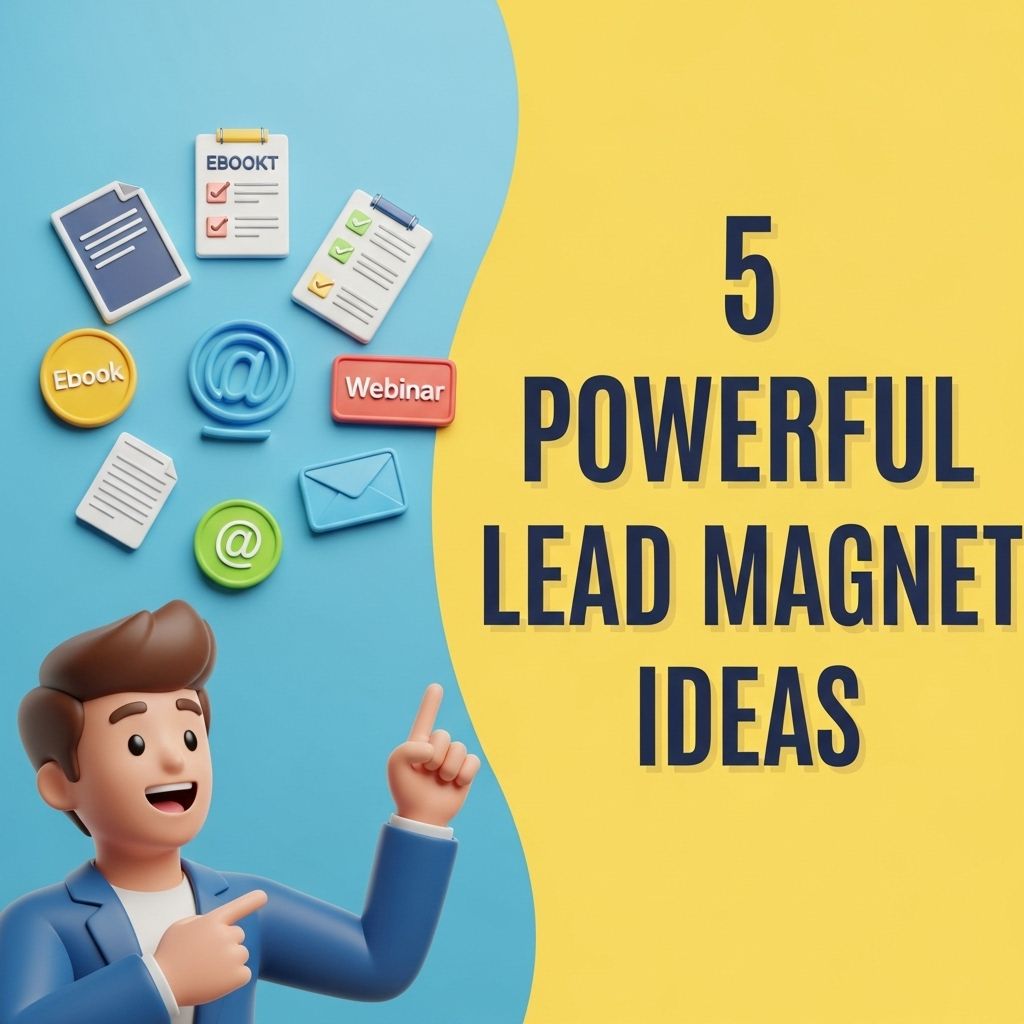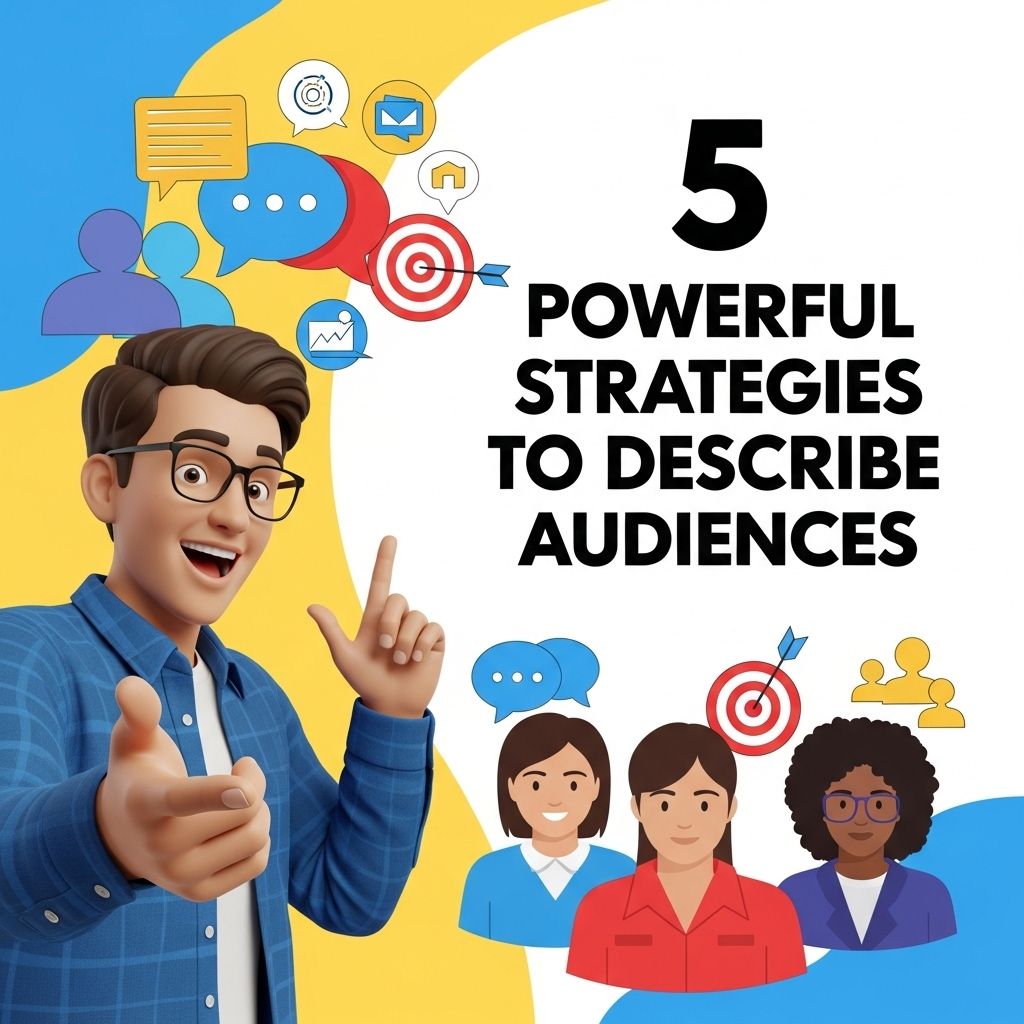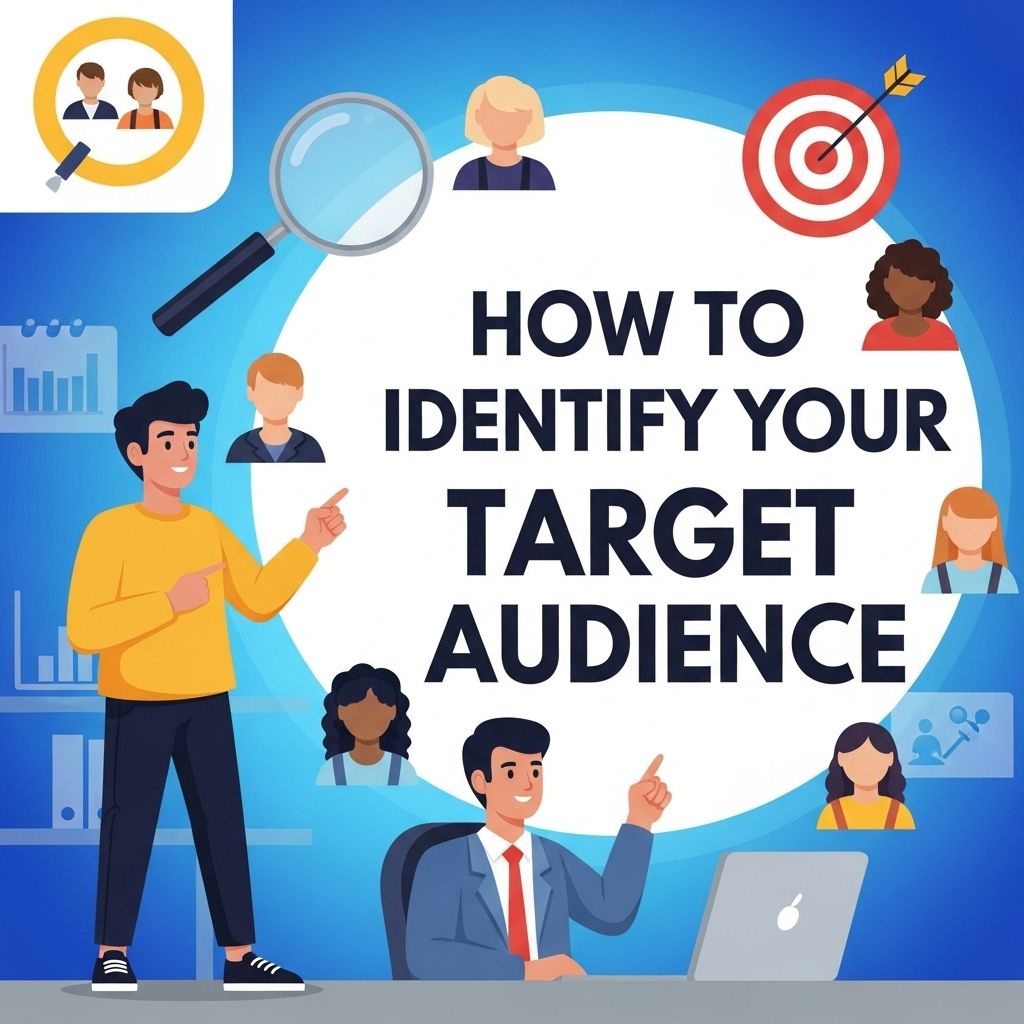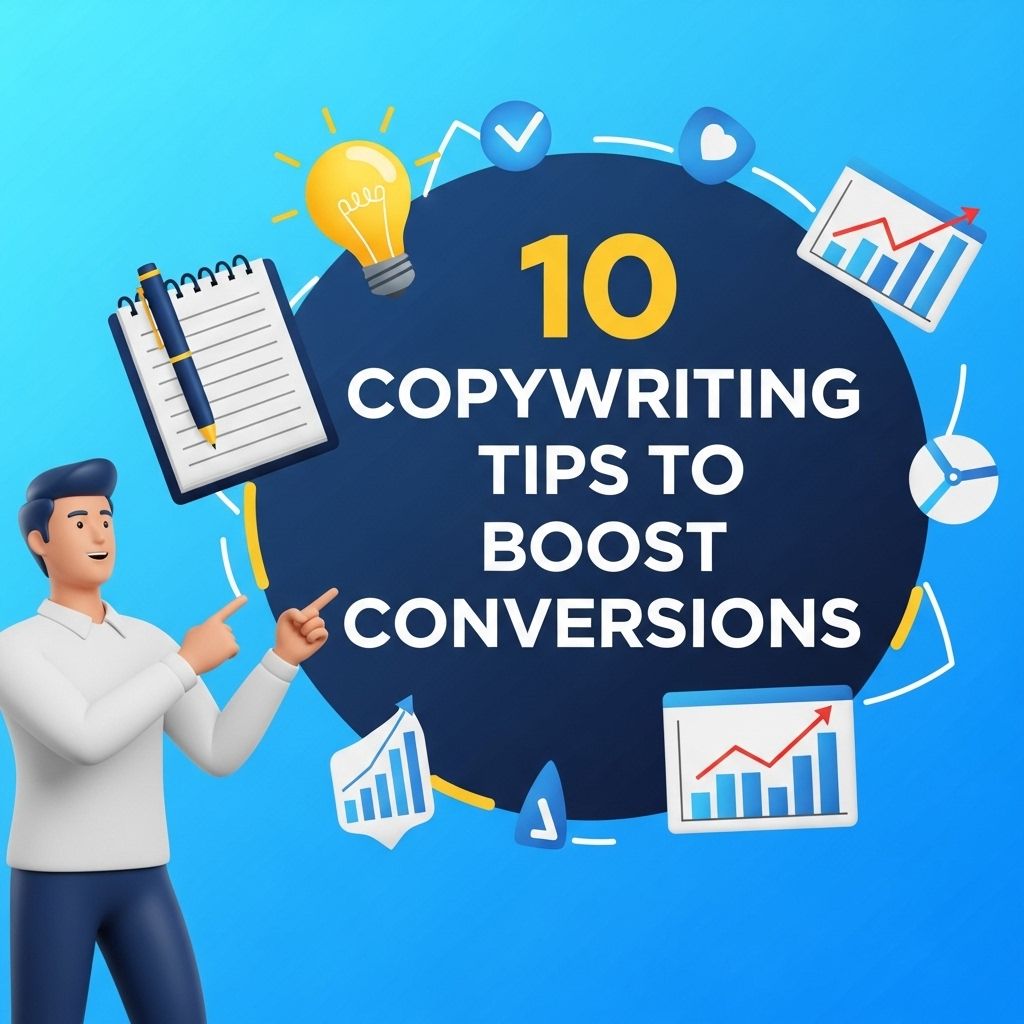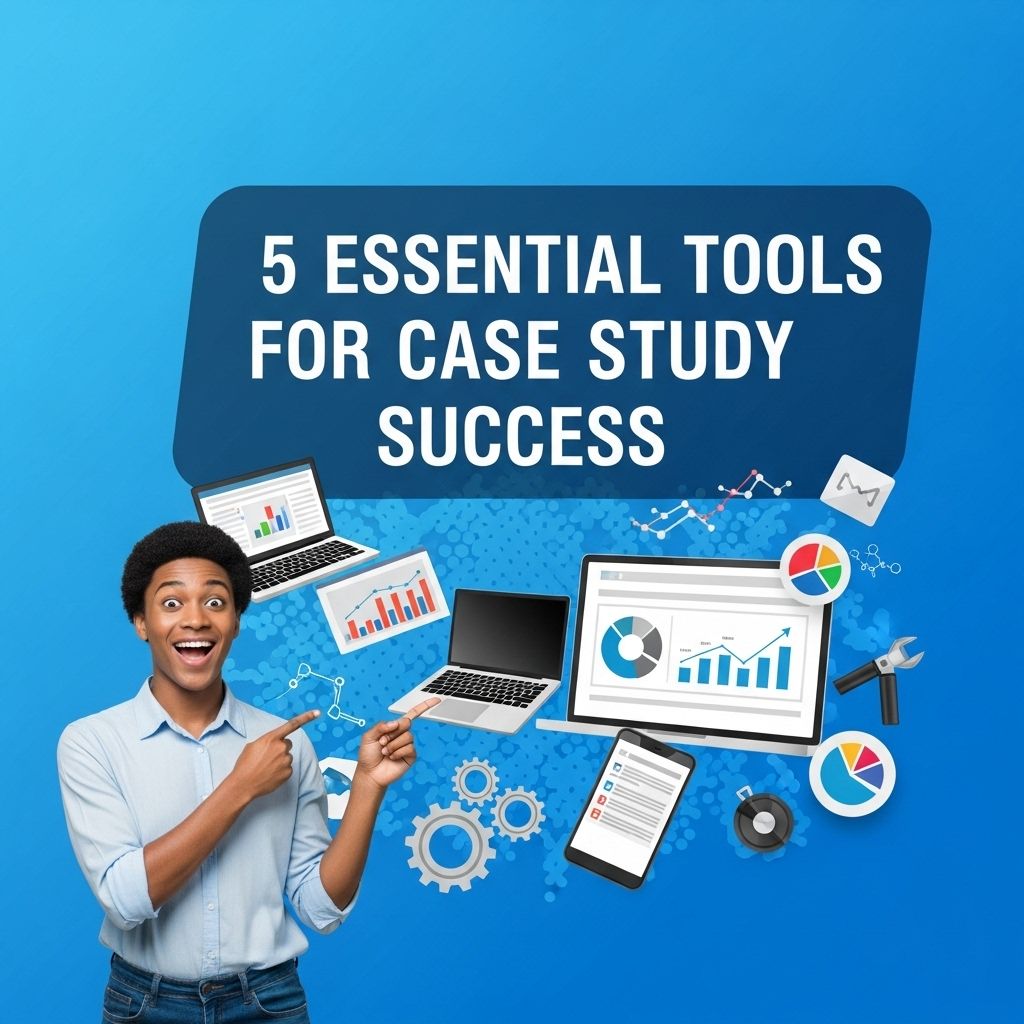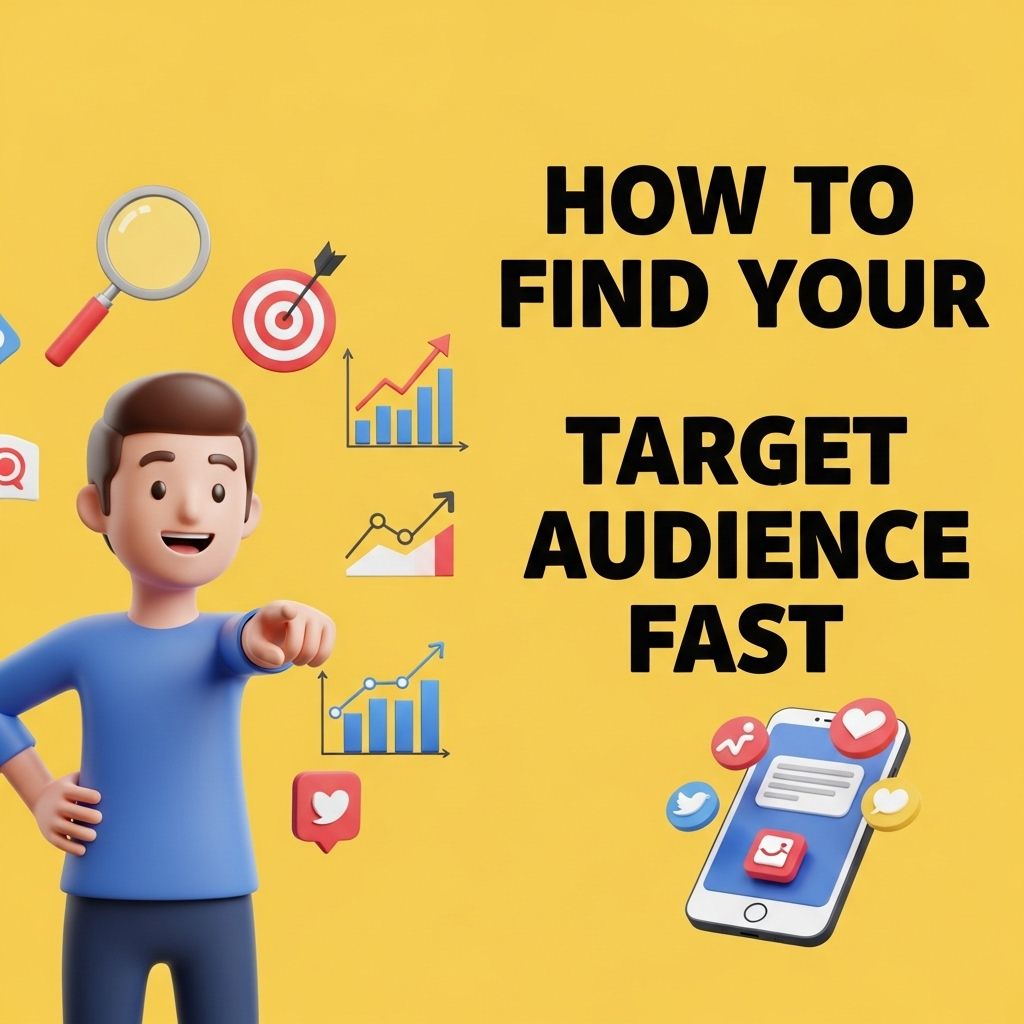Maximize Your ABM Success with AI Tools in 2025
Discover how to leverage AI tools to enhance your Account-Based Marketing (ABM) strategies for greater success in 2025.
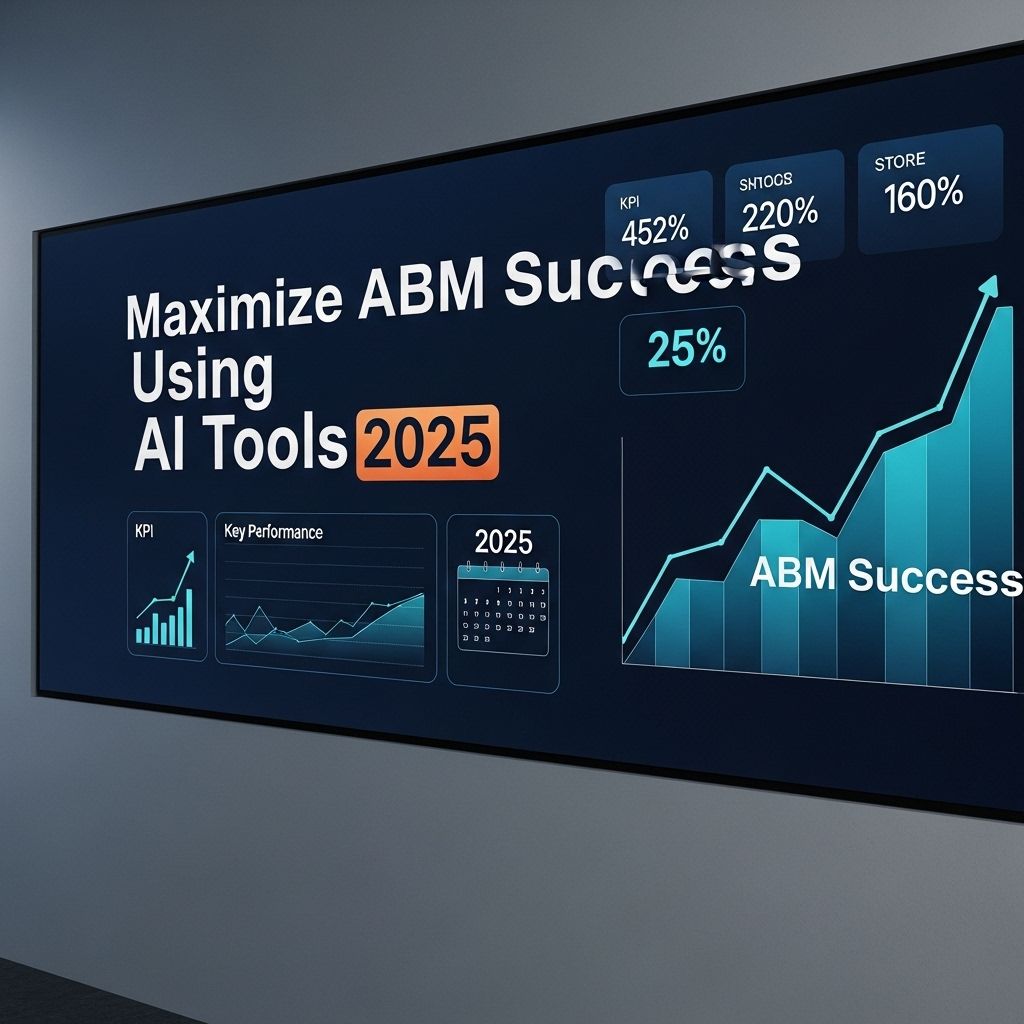
In the rapidly evolving world of digital marketing, Account-Based Marketing (ABM) has established itself as a critical strategy for B2B companies aiming to nurture high-value relationships with key accounts. As we approach 2025, the integration of Artificial Intelligence (AI) tools into ABM strategies offers unprecedented opportunities for precision targeting, personalized messaging, and enhanced analytics. This article explores how businesses can leverage AI to maximize their ABM success while navigating the challenges and opportunities ahead.
As Account-Based Marketing (ABM) continues to evolve in 2025, leveraging AI tools becomes essential for maximizing its effectiveness. These innovative technologies can streamline your targeting efforts and enhance customer engagement. For instance, see how to use 3D mockups effectively to create immersive experiences that resonate with your audience.
Table of Contents
Understanding Account-Based Marketing and Its Importance
Account-Based Marketing is a targeted approach that focuses on engaging specific accounts rather than casting a wide net through generic campaigns. By identifying key stakeholders within the target accounts and tailoring marketing efforts, organizations can significantly improve their conversion rates. Here are some reasons why ABM is crucial:
- Higher ROI: ABM campaigns often yield higher return on investment compared to traditional lead generation strategies due to their focused nature.
- Better Alignment: It fosters alignment between sales and marketing teams, ensuring that both departments work towards common goals.
- Enhanced Targeting: ABM allows for better segmentation of audiences, enabling personalized experiences that resonate with decision-makers.
The Role of AI in Modern ABM Strategies
The integration of AI in ABM processes is transforming how businesses identify, engage, and nurture their target accounts. Here are several ways AI is enhancing ABM:
1. Predictive Analytics
AI tools can analyze vast amounts of data to predict which accounts are most likely to convert. These insights enable marketers to prioritize their efforts and allocate resources effectively. Key benefits include:
- Identifying high-value prospects.
- Forecasting customer behavior.
- Improving lead scoring methodologies.
2. Personalized Content Creation
With AI, marketers can generate personalized content that speaks directly to the needs and pain points of target accounts. Techniques like Natural Language Processing (NLP) allow for:
- Creating tailored email campaigns.
- Developing customized landing pages.
- Automating social media posts that resonate with specific audiences.
3. Enhanced Engagement Tracking
AI tools can track user interactions across channels, providing insights into how potential customers engage with content. This enables:
| Engagement Metric | AI Application |
|---|---|
| Email Open Rates | AI can optimize subject lines for higher open rates. |
| Website Interaction | Predictive analysis can suggest improvements based on user behavior. |
| Social Media Engagement | AI algorithms can analyze post performance to refine future content strategies. |
Implementing AI-Driven ABM Strategies
To effectively implement AI in ABM strategies, organizations should follow a structured approach. Below is a step-by-step guide:
- Define Clear Objectives: Establish specific goals for your ABM initiatives, such as increasing engagement or improving conversion rates.
- Identify Target Accounts: Use AI tools to analyze data and select high-potential accounts that align with your business objectives.
- Develop Personalized Campaigns: Create tailored marketing materials that address the unique needs of each target account.
- Leverage Technology: Utilize AI platforms that offer predictive analytics, content generation, and engagement tracking capabilities.
- Monitor and Optimize: Continuously track the performance of your campaigns and adjust strategies based on data-driven insights.
Challenges in AI-Driven ABM
Despite its potential, the implementation of AI in ABM is not without challenges. Organizations must navigate several hurdles:
1. Data Privacy Concerns
With increasing regulations like GDPR and CCPA, businesses must ensure compliance while collecting and utilizing customer data.
2. Integration with Existing Systems
Many organizations struggle with integrating new AI tools with their legacy systems, which can create inefficiencies.
3. Skill Gaps in the Workforce
There is often a lack of expertise in AI technologies, making it challenging for marketing teams to fully leverage these tools.
Future Trends in AI-Driven ABM
As we look forward to 2025, several trends are expected to shape the landscape of AI-driven ABM:
- Greater Automation: Expect more automated processes for lead generation and nurturing.
- Increased Use of Chatbots: AI-driven chatbots will play a crucial role in engaging potential customers in real-time.
- Enhanced Data Visualization: AI tools will offer better visualization of data analytics, making insights more accessible to marketers.
Conclusion
The integration of AI into Account-Based Marketing strategies represents a significant leap forward for organizations looking to enhance their targeting and engagement efforts. By understanding the role of AI, implementing effective strategies, and navigating potential challenges, businesses can maximize their ABM success and stay ahead in a competitive landscape. As we approach 2025, those who embrace these technological advancements will find themselves well-positioned to achieve sustainable growth and stronger relationships with their key accounts.
FAQ
What is Account-Based Marketing (ABM) and how can AI tools enhance its effectiveness?
Account-Based Marketing (ABM) is a strategic approach that targets specific accounts with personalized marketing strategies. AI tools enhance ABM by analyzing data to identify key accounts, predicting customer behavior, and automating personalized outreach, leading to higher engagement and conversion rates.
What are the top AI tools for maximizing ABM success in 2025?
Some of the top AI tools for ABM in 2025 include predictive analytics platforms, AI-driven CRM systems, marketing automation tools, and data enrichment solutions that help in identifying and reaching the right decision-makers within targeted accounts.
How can AI improve lead scoring in ABM?
AI can improve lead scoring in ABM by analyzing historical data and patterns to assign scores based on the likelihood of conversion. This allows marketers to focus their efforts on high-potential leads and tailor their strategies accordingly.
What role does data play in leveraging AI for ABM?
Data is crucial in leveraging AI for ABM as it provides insights into customer behavior, preferences, and engagement patterns. High-quality data enables AI algorithms to deliver more accurate predictions and personalized marketing strategies.
How can businesses measure the success of their ABM strategies with AI tools?
Businesses can measure the success of their ABM strategies with AI tools by tracking key performance indicators (KPIs) such as engagement rates, conversion rates, account growth, and return on investment (ROI) to assess the effectiveness of their campaigns.
What challenges do companies face when implementing AI in their ABM strategies?
Companies may face challenges such as data integration issues, lack of skilled personnel to manage AI tools, resistance to change in traditional marketing practices, and ensuring data privacy and security while implementing AI in their ABM strategies.


